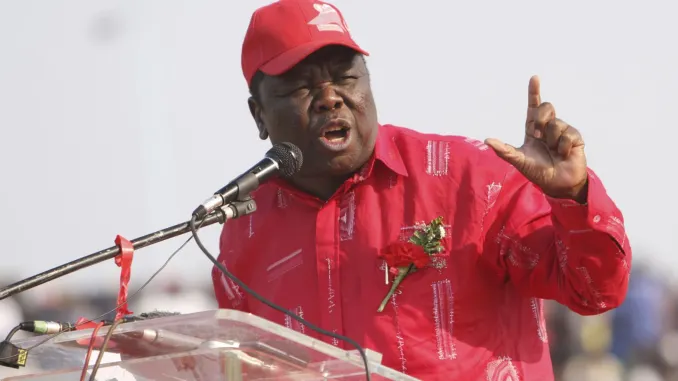
ZIMBABWE’S opposition politics, once a beacon of hope for a nation yearning for democracy, has seemingly lost its direction and purpose.
The shift from fighting for the people’s cause to personal gains has left many disillusioned, questioning whether the opposition can still be the vehicle for change it once aspired to be.
The late Morgan Tsvangirai, the founding leader of the Movement for Democratic Change (MDC), embodied the true spirit of opposition.
Since 1999, Tsvangirai led a relentless fight against Zanu PF’s authoritarian grip, culminating in the 2009 Government of National Unity (GNU). His vision was clear: a Zimbabwe free from oppression, where democracy and unity prevailed.
His ability to bring together diverse voices under a single cause demonstrated his belief that numbers and collective action mattered.
However, Tsvangirai’s death marked a turning point. The MDC Alliance, which emerged after uniting with other parties, has failed to sustain the momentum and vision he left behind.
Today’s opposition is fragmented, with infighting and ego-driven leadership undermining the democratic principles they once championed.
Instead of uniting against Zanu PF’s misrule, some leaders prioritise personal ambitions, turning the opposition into a collection of self-serving individuals rather than a unified front.
- Teachers, other civil servants face off
- News in depth: Fears of violent 2023 polls grow as ED fails to deliver on promises
- Chamisa party defiant after ban
- Letter to my people: Mthuli Ncube experiment has failed
Keep Reading
A glaring example of this disarray is the disconnect between opposition leaders and the people they claim to represent. Many supporters turned to the opposition for its promise of democracy and accountability.
Yet, some leaders now mimic the very authoritarian tendencies they oppose, side-lining genuine voices within their ranks and treating their supporters with contempt.
Furthermore, actions speak louder than words. Reports of opposition MPs comfortably sharing rice donated by President Mnangagwa or frequenting his farm raise serious questions about their commitment to the cause. Such behaviour erodes public trust and feeds perceptions that opposition leaders are compromised.
The opposition’s failure to unite is its greatest weakness. Instead of building bridges, leaders focus on petty squabbles and self-promotion. As a result, the movement lacks the cohesion and strategic direction necessary to challenge Zanu PF’s dominance effectively.
One of the most damaging trends has been the side-lining of seasoned leaders in favour of newcomers with questionable motives. While fresh ideas are vital, dismissing experienced figures, who have been in the trenches since the opposition’s inception is counterproductive.
Genuine leaders must be recognised for their contributions and given space to guide the movement forward.
The opposition must act urgently to reclaim its relevance. Unity is not an option — it is a necessity. Leaders must prioritise the collective goal of democracy over personal interests and egos.
They must engage their supporters, listen to their grievances, and demonstrate through action that they remain committed to the cause.
Zimbabweans deserve an opposition that fights for them, not one that mirrors the corruption and self-interest of the ruling party. Without immediate reform and a return to Tsvangirai’s principles of unity, inclusivity, and democratic struggle, the opposition risks fading into irrelevance. The time to rise is now — before it’s too late.
- Chinowaita is a political analyst.











